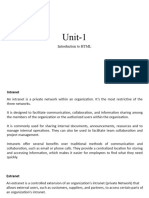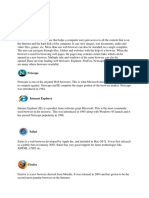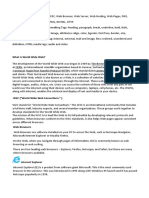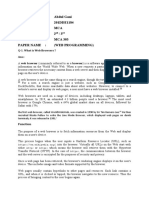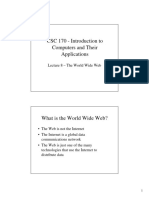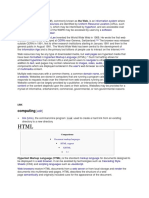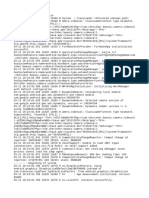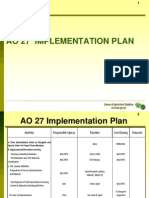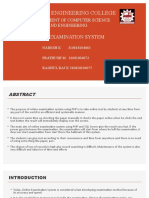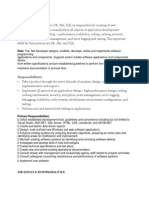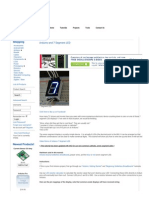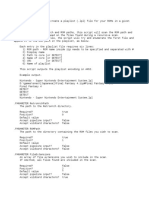0% found this document useful (0 votes)
34 views8 pagesWebpage
A web page is a document on the World Wide Web accessible via a web browser, containing various multimedia elements and written in HTML. Websites are collections of related web pages identified by a common domain name, while web browsers are applications that allow users to access and interact with these web pages. Search engines help users find information on the internet by crawling, indexing, and ranking web content based on user queries.
Uploaded by
sowmyakella02Copyright
© © All Rights Reserved
We take content rights seriously. If you suspect this is your content, claim it here.
Available Formats
Download as PDF, TXT or read online on Scribd
0% found this document useful (0 votes)
34 views8 pagesWebpage
A web page is a document on the World Wide Web accessible via a web browser, containing various multimedia elements and written in HTML. Websites are collections of related web pages identified by a common domain name, while web browsers are applications that allow users to access and interact with these web pages. Search engines help users find information on the internet by crawling, indexing, and ranking web content based on user queries.
Uploaded by
sowmyakella02Copyright
© © All Rights Reserved
We take content rights seriously. If you suspect this is your content, claim it here.
Available Formats
Download as PDF, TXT or read online on Scribd
/ 8


